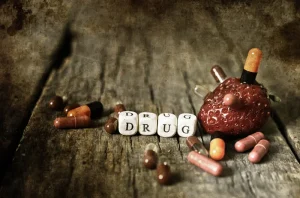
This makes them more likely to contract diseases such as pneumonia and tuberculosis. However, keeping track of alcohol intake can help a person reduce their risk of alcohol-related health conditions or injury. Occasional or light drinking generally does not cause health problems. Heavy drinking, however, can have serious health risks, including cancer and damage to multiple organs. Chronic alcohol use and binge drinking damage the heart muscle, making it harder for the heart to pump blood effectively. Alcohol can also contribute to arrhythmias (irregular heartbeats) and hypertension (high blood pressure), increasing the risk of heart attack, stroke, and heart failure.
What is the Medical Definition of Alcohol Addiction?

Only 17% of functional alcoholics have ever sought help for their alcohol dependence. Those who do tend to make use of 12-step programs and private health care professionals. When alcohol is consumed, it passes from the stomach and intestines into the bloodstream, where it distributes itself evenly throughout all the water in the body’s tissues and fluids. Drinking alcohol on an empty stomach increases the rate of absorption, resulting in higher blood alcohol level, compared to drinking on a full stomach. In either case, however, alcohol is still absorbed into the bloodstream at a much faster rate than it is metabolized.
What is alcohol use disorder?
Her favorite thing about working in recovery is watching individuals come into their own and find the inner peace they once had but lost along the way. Hillary is currently an undergrad at the University of Phoenix with a BS in Business and working on a master’s degree in healthcare administration. Hillary not only enjoys being part of the Anchored Tides family, but showing up as a wife, daughter, sister, aunt, and friend to those around her. Hillary thanks the program of recovery every day for the life she has and strives to be an example for women everywhere. Yes, you can be an alcoholic or have a mild substance use disorder and not drink daily. For example, if you are a functional alcoholic, while you might not drink every day, it could be to excess when you do drink.

Stay on top of latest health news from Harvard Medical School.
Your insurance plan may cover some or all of the cost of alcohol rehab. Our online health insurance verification system will estimate your in-network and out-of-network deductibles, coinsurance percentages and out-of-pocket maximums. Within 5 minutes, you’ll receive an email with these details – free of charge. It’s not easy to talk with someone about their alcohol intake, but your conversation could be critical. Alcohol can exacerbate hot flash symptoms, which occur because of disruption to the body’s thermoregulatory zone.

Establish alcohol-free days. Choose several days each week to steer clear of all alcohol.
Alcohol use disorder, often called alcoholism, is a medical condition in which the individual indulges in heavy alcohol use frequently. People with this disorder are unable to stop drinking even if it causes emotional or physical problems to them or those around them. The CDC defines heavy drinking as eight or more drinks in a week for women.
Understanding a Standard Drink
For many people, consuming alcohol, even heavy consumption, does not pose an issue. However, for around 18 million people in the U.S., it leads to the development of AUD. The World Health Organization (WHO) attributes 3 million annual deaths to harmful alcohol consumption. Alcohol use can cause sexual Do Alcoholics Drink Every Day dysfunction, such as difficulty achieving or maintaining an erection and decreased sexual sensations. The impact alcohol has on the reproductive system extends beyond these temporary effects. Chronic alcohol use causes hormone imbalances in both men and women and leads to problems with fertility.
- I worked a high-stress job that ramped up pre-existing mental health problems to unmanageable levels.
- These questions are similar to what a medical professional would ask you; however, it is not a substitute for medical advice or an official diagnosis.
- Hillary, an Orange County local, has been working in the field of addiction for over adecade and has been in recovery herself for over 13 years.
- Talk to a healthcare provider if you are concerned about your drinking or that of a loved one.
- Even so, you might still have several of the symptoms of an AUD, such as uncontrollable cravings.
A medical professional can evaluate a person’s drinking pattern, prescribe any necessary medications, and refer a person to specialists who can help them quit drinking alcohol. Not all people who drink excessively have an AUD, which doctors previously referred to as alcohol addiction or dependence. Chronic heavy drinking lowers a person’s immunity and puts them at risk of bacterial and viral infections.
Drinking Alone, Secretly, or at Unconventional Times
It produces less dopamine on its own and becomes dependent on the artificial boost of dopamine from alcohol. You go from drinking as a social activity to drinking as a way to decompress and drinking as stress relief. This is where your relationship with drinking takes a darker turn. If this is you, chances https://ecosoberhouse.com/ are you engage in gray area drinking, an in-between kind of drinking that might not tick all the boxes of AUD, but you exist on the spectrum. In some people, it develops quickly, while in others, the progression takes over a long period. In the U.S., 12 ounces of ABV beer (5%) are considered a drink.